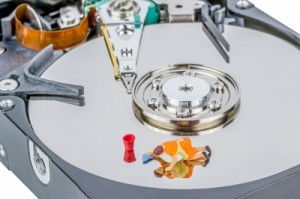 When a hard drive stops working or data loss occurs, the cause is either logical or physical. The type of recovery methods used to get your data back will vary depending on how the drive failed, so it’s important to understand what the differences are between logical and physical recoveries. Below are a few examples of some potential causes for both logically and physically failed hard drives:
When a hard drive stops working or data loss occurs, the cause is either logical or physical. The type of recovery methods used to get your data back will vary depending on how the drive failed, so it’s important to understand what the differences are between logical and physical recoveries. Below are a few examples of some potential causes for both logically and physically failed hard drives:
Logical:
- Accidentally deleted files
- Unintentional formatting of hard drive partition/volume
- System errors as a result of a virus attack
- Operating system corruption
- Corrupt files, folders, directories
- Invalid entries on file allocation tables
- Loss of a file system structure
- Malware, viruses, Trojans, etc.
- Software bugs
Physical:
- Firmware corruption
- Electrical problems (power spike or electrical surge) that can directly affect the printed circuit board (PCB).
- The BIOS cannot detect the drive
- Damage to the preamplifier circuit of the read/write heads
- Platter damage (scratched surface)
- Manufacturing defects
- Tracking errors
- Inaccessible data blocks or sectors
- Constant Cyclic Redundancy (CRC) errors
- Damage to the head disk assembly
- Seized spindle motor / bearing failure
- Corrupt service area
- Head crash – occurs when the read/write heads come in contact with the platters, physically erasing the data.
These are just some of the problems we see on a regular basis, and there is often more than one problem with a failed drive. For example, a drive with a fried PCB may also have firmware damage and logical errors, making recovery much more complicated than it might initially appear.
If your drive has stopped working normally or you are unable to access your data, it is essential to contact a professional data recovery company before attempting any work yourself. The first attempt at recovery always has the highest chance for success, so don’t take a chance and jeopardize your data!
Image courtesy of Mister GC at FreeDigitalPhotos.net
